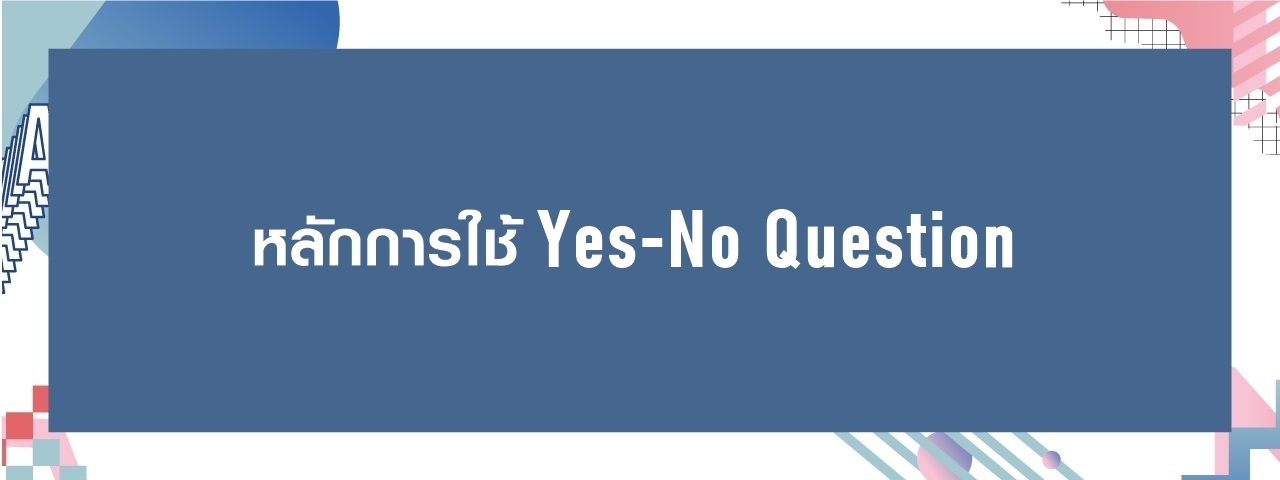

 168,412 Views
168,412 Viewsถ้าประโยคนั้นมี Verb to be ให้นำมาวางข้างหน้าได้เลย ดังเช่นรูปประโยคต่อไปนี้
|
ประโยคบอกเล่า |
ประโยคคำถาม |
การตอบ |
|
He is a teacher. |
Is he a teacher? |
Yes, he is. |
|
You are Japanese. |
Are you Japanese? |
Yes. I’m. No, I’m not. |
|
He was a doctor. |
Was he a doctor? |
Yes, he was. |
|
They were at school yesterday. |
Were they at school yesterday? |
Yes, they were. |
ถ้าประโยคที่เราจะถามไม่มี Verb to be ให้นำ Verb to do มาใช้นำหน้าประโยค โดยใช้รูปเอกพจน์หรือพหูพจน์ตามประธาน ดังเช่นรูปประโยคต่อไปนี้
|
ประโยคบอกเล่า |
ประโยคคำถาม |
การตอบ |
|
You know her name. |
Do you know her name? |
Yes, I do. |
|
She plays the piano. |
Does she play the piano? |
Yes, she does. |
|
You walked to school yesterday. |
Did you walk to school yesterday? |
Yes, I did. |
**ข้อสังเกต เมื่อเราใช้ Do, Does หรือ Did อย่าลืมเปลี่ยนรูปกาลและพหูพจน์/เอกพจน์ตามประธานด้วยค่ะ
หากประโยคนั้นมีกริยาช่วยตัวอื่น ๆ เช่น Can, Could, Will, Would, Shall, Should ให้เอาคำกริยาเหล่านี้ขึ้นต้นแล้วตามด้วยประโยคคำถาม เช่น
|
ประโยคบอกเล่า |
ประโยคคำถาม |
การตอบ |
|
You can speak Chinese. |
Can you speak Chinese? |
Yes, I can. |
|
You will go with us. |
Will you go with us? |
Yes, I will. |
|
You could tell me your name. |
Could you tell me your name?
|
Yes, I could. |
